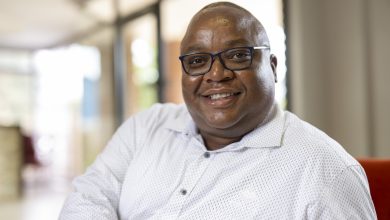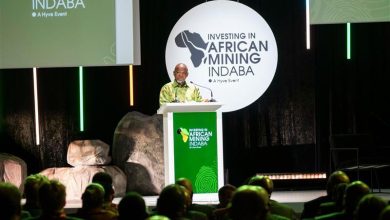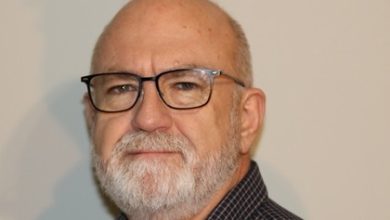
MQA aides careers and mining sector advancement
In South Africa, the mining and minerals industry has been and still remains the lifeblood of the economy. While no one can reasonably argue with this fact, the current realities of this sector speak to declining production and revenue, the need for digital transformation and sustainability, and most notably – the need to educate, train and upskill the workforce, in order to meet the challenges and shifting dynamics that are faced by this sector head on.
Meet Nonjabulo Mkhondo, a 27-year-old professional in Ventilation Occupational Hygiene and Emergency Preparedness, working underground in South Africa’s sole producer of refined copper. Mkhondo represents a very small number of females who work underground in the country’s mining sector – a space that is notorious for being very male dominated.
“I thrive in high-pressure underground environments, where precision, accountability, and decisive action are non-negotiable. My mission is to set the standard for operational safety and environmental excellence in the mining sector,” she explains.
Mkhondo joined the Mining Qualifications Authority’s (MQA) Graduate Development Programme through Palaborwa Copper in September 2023, where she quickly distinguished herself as a high-performing participant. The MQA supports qualified graduates with an amount of R340 000 over a period of two years for placement with Mining Companies for the purpose of gaining experience required for absorption in the industry. Mkhondo is one of thousands of beneficiaries that have managed to change their lives through programmes that are offered by the MQA – a Sector Education and Training Authority (SETA) responsible for the facilitation of skills development programmes for the mining and minerals sector in South Africa. Mkhondo’s exceptional performance led to her early absorption into Palaborwa Copper in April 2025, well ahead of schedule due to her capability, dedication and high potential. “My role demands precision, proactive problem-solving, and an unwavering commitment to workplace safety. I continuously strive to improve operational standards, mentor colleagues, and contribute meaningfully to Palaborwa Copper’s legacy of excellence,” she concludes.
Ndikho Nako, a Graduate Lecturing Assistant in the Department of Chemistry at the University of the Western Cape, is another beneficiary of the MQA’s mandated initiatives. Nako was given this opportunity through the MQA’s visionary Higher Education and Training (HEI) Lecturer Support Programme, which provides full financial and institutional support to participants who want to enter or are already in academia. The objective of the project is to ensure that there is transformation in the HEI space. “I was one of the fortunate young academics granted a three-year contract under this initiative, with the specific conditions of completing a teaching development programme (TDP) and my PhD within the contract period, alongside a reduced lecturing load. I am delighted to have successfully met and exceeded these conditions,” exclaims Nako, who has since secured a permanent academic position at the Durban University of Technology (DUT). “This career advancement is a direct result of the foundational support and development I received through the MQA-funded HEI Lecturer Development programme. It allowed me to establish myself as a well-rounded academic, proficient in both teaching and research,” he concludes.
Oritonda Muribwathoho is yet another academic who benefited from MQA-funded programmes that are aimed squarely at upskilling South Africa’s mining and minerals sector participants. Muribwathoho received support through the academic staff development programme at Cape Peninsula University of Technology (CPUT), where he was able to complete his PhD. “The protected time and reduced teaching responsibilities afforded by the programme were instrumental in allowing me to focus on my research, leading to the publication of five academic papers, with an additional three currently under review. This significant research output would not have been possible without the dedicated support and conducive environment fostered by the MQA’s HEI Lecturer support programme,” he says.
Over and above these achievements, Muribwathoho has successfully obtained his certificate from the teaching development programme offered in CPUT, which has significantly enhanced his pedagogical skills and confidence as a lecturer. “I am immensely grateful for the MQA’s investment in academic staff development. I have seen first-hand how this is making a tangible and profound difference in the careers of individuals like myself, and, by extension, in the quality of education and research within our institutions,” he adds.
Dr. Thabo Mashongoane, who serves as the CEO of the MQA, is deeply passionate about upskilling the workforce of the South African mining and minerals sector, through ensuring that the mandate of the MQA is fully executed. “South Africa’s mining and minerals sector is at a critical crossroads, facing both the legacy challenges of economic inequality, and the transformative pressure of a digital, green future. But while minerals remain the lifeblood of the economy, the sector’s real value lies in its people, and how well we prepare them to meet the moment,” he says.
Echoing this sentiment is the MQA’s Chief Operations Officer, Mr. Xolisa Njikelana. “The MQA plays a pivotal role in enabling individuals to enter and thrive within the mining and minerals sector. Our approach is comprehensive, encompassing a broad spectrum of initiatives designed to cultivate a skilled and competent workforce in line with the vision of the organisation. We recognise that the sector’s success hinges on having competent individuals with the right skills, and we dedicate and sacrifice ourselves to facilitating this,” he adds.
While the skills deficit in the mining sector has been widely reported on, data from the MQA reveals that the SETA has made substantial investments in education and training, where over 3,906 unemployed learners have received bursaries to pursue studies in critical fields such as Mining, Mechanical, Chemical, Electrical, and Industrial Engineering over the period of 3 years.
The mining and minerals sector’s challenges are not just limited to its labour force and skills development, issues such as illegal mining, climate change and the energy crisis are other factors, however, the MQA is all hands-on deck to ensure that they deliver research and data-driven solutions to execute their mandate. This has led to the MQA partnering with the Chemicals Industries Education and Training Sector Authority (CHIETA) and the Transport Education and Training Authority (TETA) to establish a Centre of Specialisation for Green Hydrogen training. The first cohort of leaners are planned to commence with training In March 2026.






